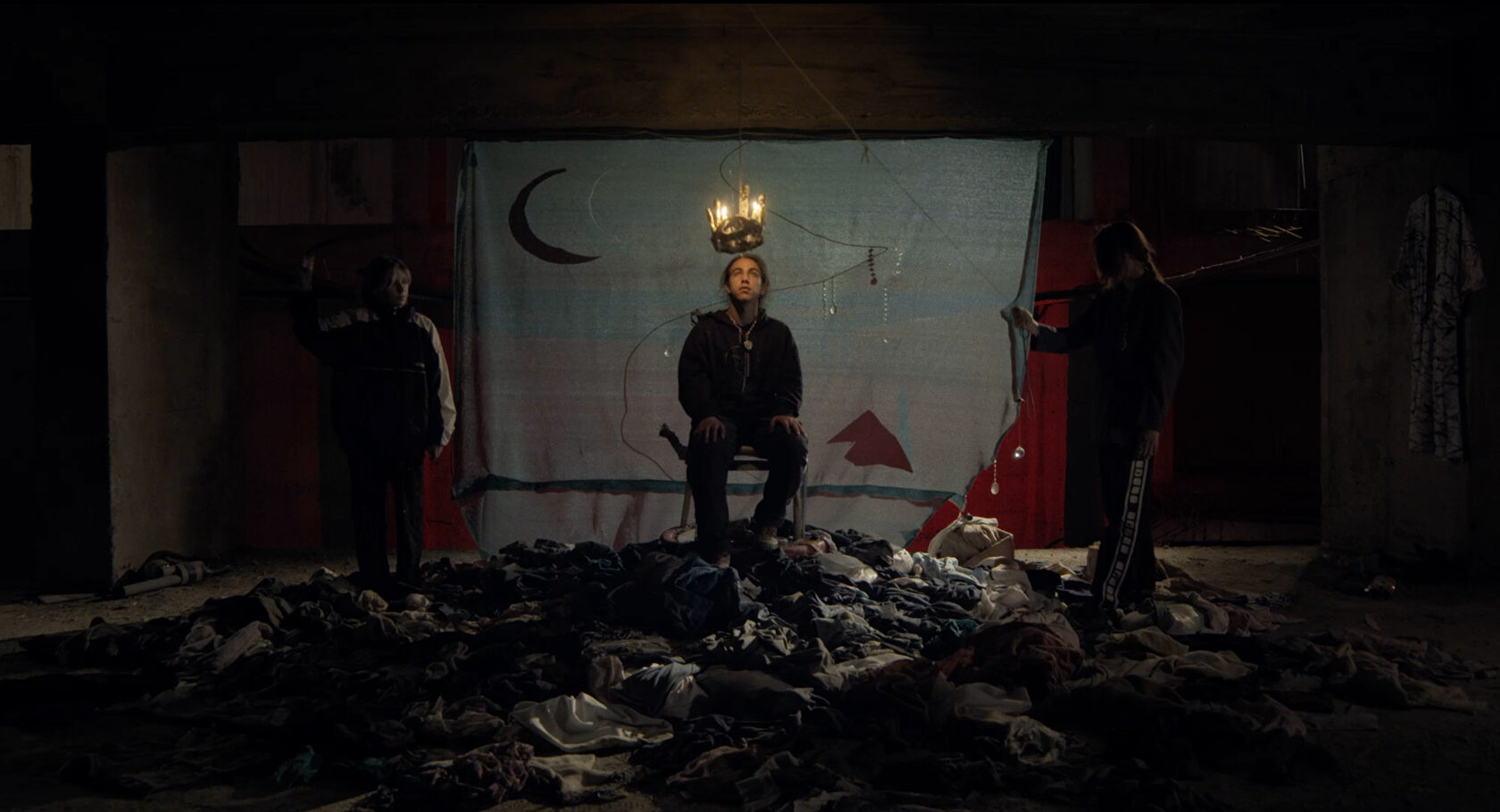by Elizabeth Alpaidze
Felix Kalmenson's Gamodi is a poetic exploration of loneliness set against the backdrop of the COVID pandemic. The film follows Viktor, a drag queen, who lives in a half-built building with a teenager named Tarzan. At its core, Gamodi delves into the isolation experienced by the queer community within a traditional society, exacerbated by the pandemic and an unreliable economy. Tbilisi, typically portrayed as a bustling, sun-dappled city, is captured in starkly different terms in Gamodi. The director masterfully uses abandoned buildings and a near-deserted urban landscape to encapsulate the protagonists' solitude.
The film’s most fascinating aspect is the cinematography by Zarina Kodzati, which lends it a dreamlike quality. Gamodi’s visual grammar is captivating; the juxtaposition of long static shots and unusual camera placements evoke a sense of longing and isolation. Yet the script, penned by Kalmenson and Ana Gzirishvili, doesn’t measure up to the film’s visual charms. The plot doesn’t delve deeply enough into the characters, leaving their motivations unexplored, and the narrative to feel somewhat repetitive — more appropriate for a short than a feature-length film.
That said, the nuanced and sensual performance by Matt Shally breathes life into Viktor, providing glimpses into the protagonist’s inner world. Shally's turn adds a layer of beauty and complexity to Gamodi, allowing one to empathize with Viktor's loneliness. None of his movements or emotions are accidental; every subtle gesture vividly showcases his character's worldview. Impressive in every shot, Shally's presence here truly steals the show. While the cinematography and the lead’s performance stand out, Gamodi’s script never quite lives up to the atmosphere Kodzati conjures.
Felix Kalmenson's Gamodi is a poetic exploration of loneliness set against the backdrop of the COVID pandemic. The film follows Viktor, a drag queen, who lives in a half-built building with a teenager named Tarzan. At its core, Gamodi delves into the isolation experienced by the queer community within a traditional society, exacerbated by the pandemic and an unreliable economy. Tbilisi, typically portrayed as a bustling, sun-dappled city, is captured in starkly different terms in Gamodi. The director masterfully uses abandoned buildings and a near-deserted urban landscape to encapsulate the protagonists' solitude.
The film’s most fascinating aspect is the cinematography by Zarina Kodzati, which lends it a dreamlike quality. Gamodi’s visual grammar is captivating; the juxtaposition of long static shots and unusual camera placements evoke a sense of longing and isolation. Yet the script, penned by Kalmenson and Ana Gzirishvili, doesn’t measure up to the film’s visual charms. The plot doesn’t delve deeply enough into the characters, leaving their motivations unexplored, and the narrative to feel somewhat repetitive — more appropriate for a short than a feature-length film.
That said, the nuanced and sensual performance by Matt Shally breathes life into Viktor, providing glimpses into the protagonist’s inner world. Shally's turn adds a layer of beauty and complexity to Gamodi, allowing one to empathize with Viktor's loneliness. None of his movements or emotions are accidental; every subtle gesture vividly showcases his character's worldview. Impressive in every shot, Shally's presence here truly steals the show. While the cinematography and the lead’s performance stand out, Gamodi’s script never quite lives up to the atmosphere Kodzati conjures.
